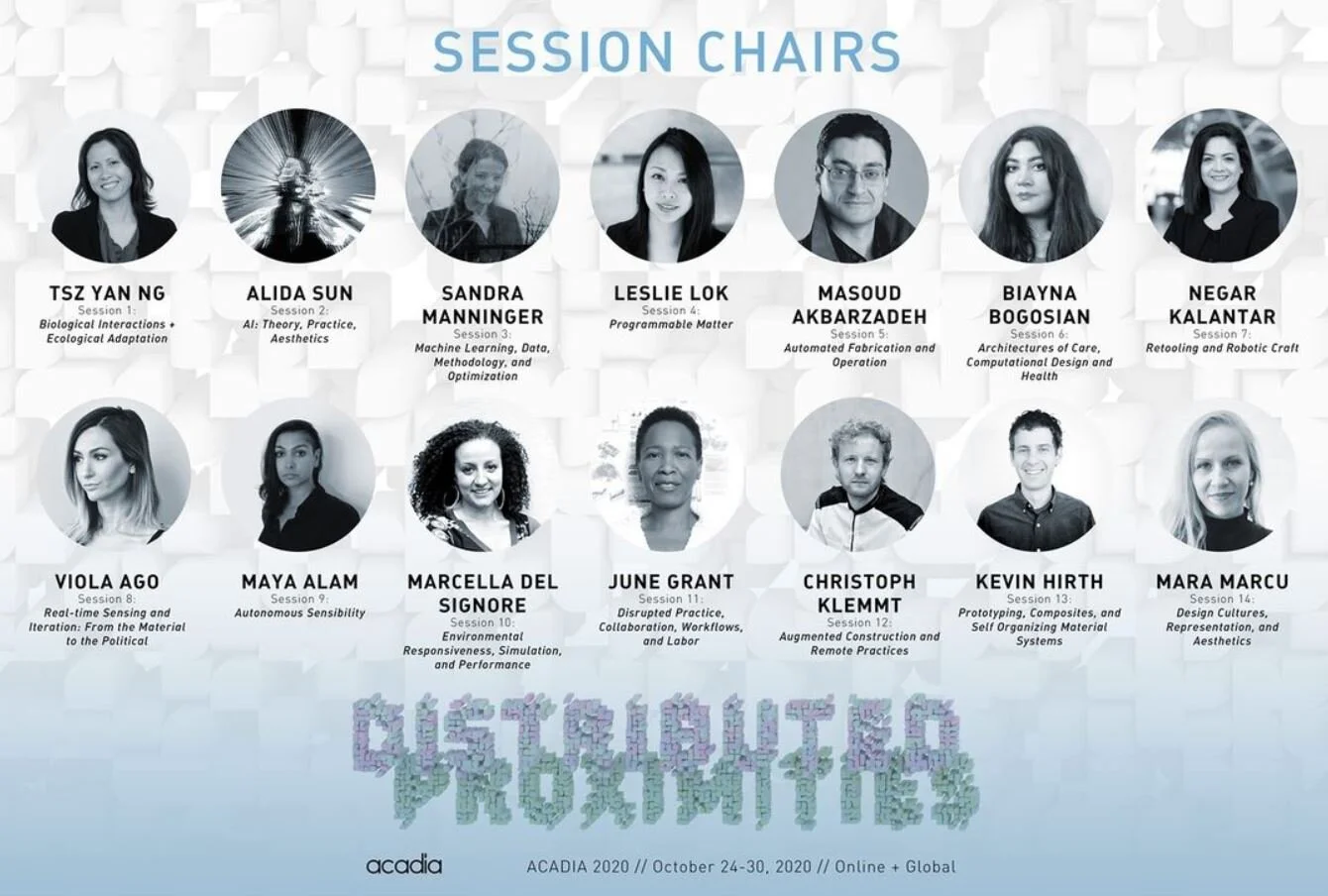ACADIA 2020: Distributed Proximities conference features fourteen sessions of peer-reviewed research, organized thematically.
Session chairs, including Negar Kalantar, moderated the conversations of the fourteen sessions.
Description:
Abrupt shifts due to the global pandemic have precipitated myriad experiments in remoteness, improvised virtual communities, and rapid retooling to address novel urgencies. These circumstances provide an opportunity to reflect upon practices and priorities, to recognize the interdependent coevolutionary nature of our planet, society, and built environment, and to collectively re-imagine alternate futures.
Acknowledging the volatile disruptions of normal routines, Distributed Proximities aims to explore the complex contours of the moment by privileging operative modalities and their (re)organizational logics. The term “distributed computing” refers to any parallel computation process that partitions a complicated task into discrete quanta. Originally relying upon an operating system architecture with physically separated processing nodes, the system’s connected array structure is the source of its robustness. In the current state of forced semi-autonomy, a remarkable simulacrum has emerged: diverse, ad hoc adaptations—academia fragmented, distributed research, bottom-up fabrication—that demonstrate the resilience and ingenuity of the computational design community in the face of crisis.
With this reality as a point of departure, Distributed Proximities invites contributions of recent and emerging work in computational design innovation and culture. In addition to completed research, this year we encourage the submission of work that is in-process, behind-the-scenes, recently initiated, and in-formation.
ACADIA 2020 will be an entirely virtual event, featuring peer-reviewed, juried, and curated content, published proceedings, as well as live discussions and activities that aim to radically open up the conversation around computational design and its critical dialogues.
Session 7: Retooling and Robotic Craft
Bio: Negar Kalantar
Dr. Negar Kalantar is an Associate Professor of Architecture and a Co-Director of Digital Craft Lab at California College of the Arts (CCA) in San Francisco. Her cross-disciplinary research focuses on materials exploration, robotic and additive manufacturing technologies and engaging architecture, science, and engineering as platforms for examining the critical role of design in global issues and built environments.
Kalantar is the recipient of several awards and grants, including the Dornfeld Manufacturing Vision Award 2018, the National Science Foundation, Autodesk Technology Center Grant, and X-Grant 2018 from the Texas A&M President’s Excellence Fund on developing sustainable material for 3-D printed buildings.
Some of the outcomes of her work have been featured in the Guardian, on the BBC, in science-focused magazines, and by the National Science Foundation. Her research has been presented at the Technical University of Vienna and Berlin, ETH Zurich, University of Maryland, Tehran University, Virginia Tech, Texas A&M University, and New York 3D Print Show. She has organized national and international workshops on additive manufacturing, robotics, and materials advancement in digital fabrication and architecture.



